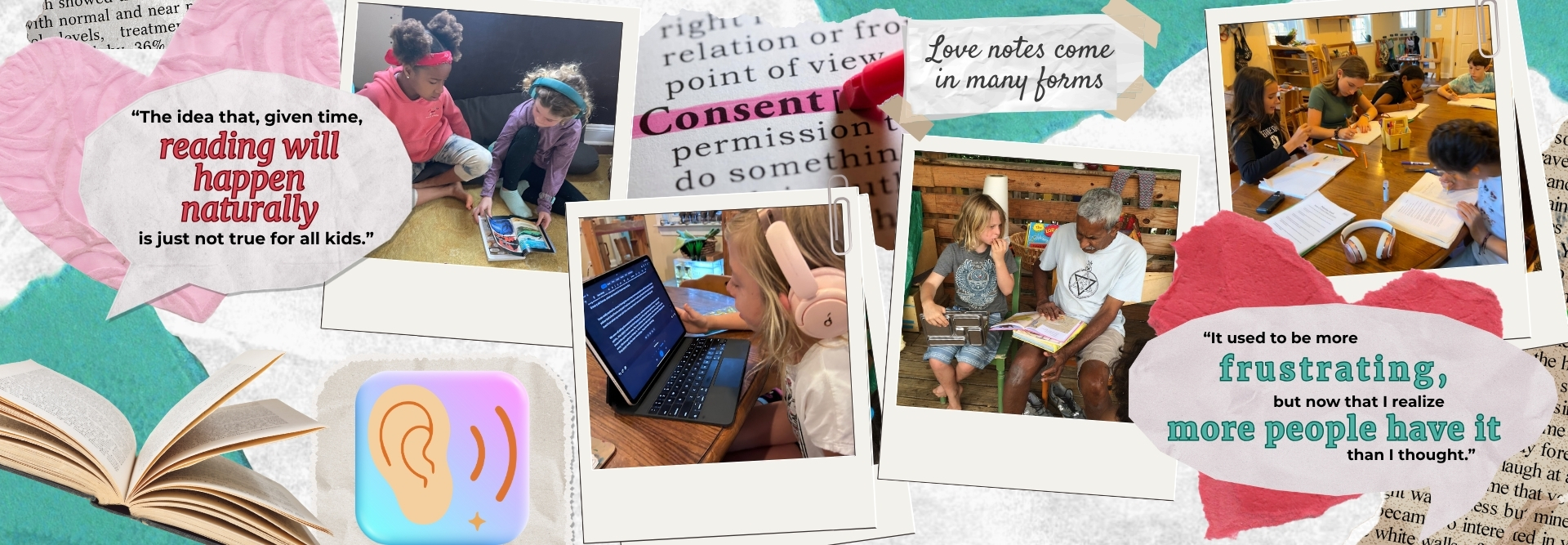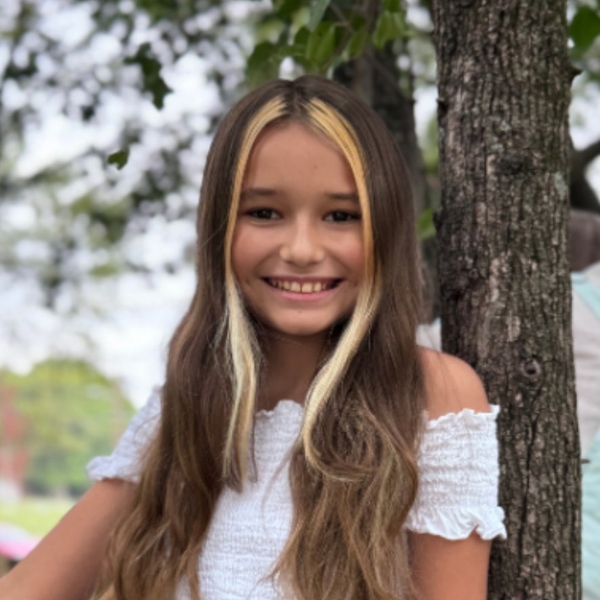
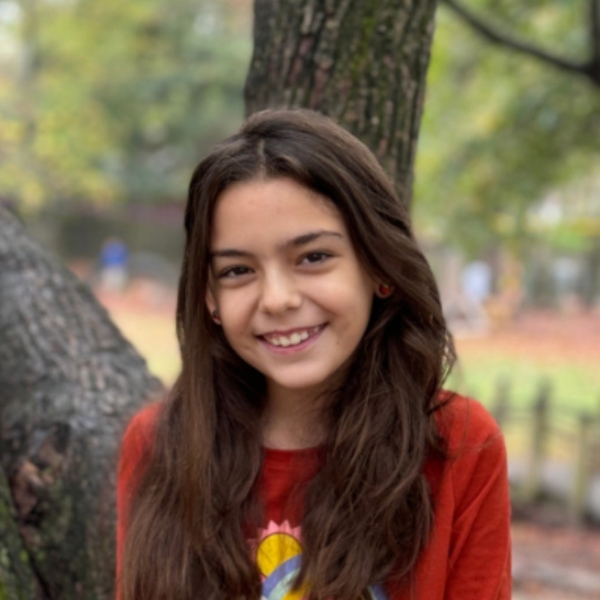
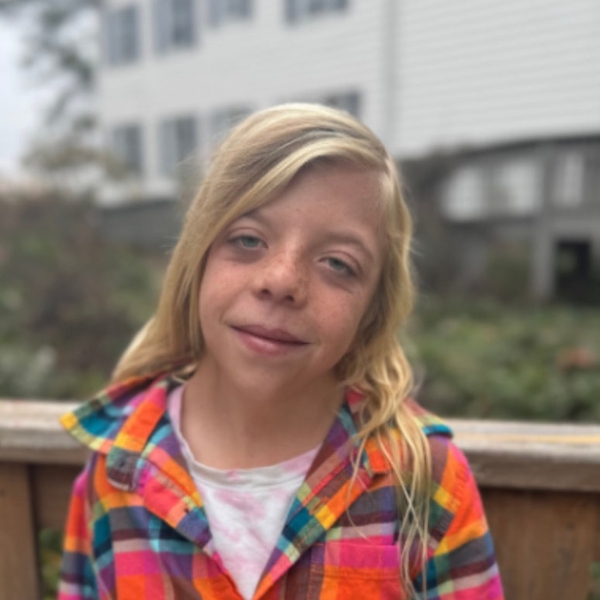
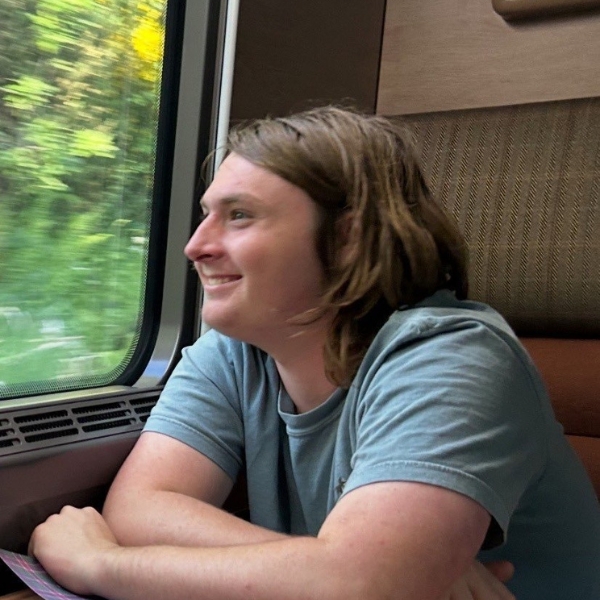
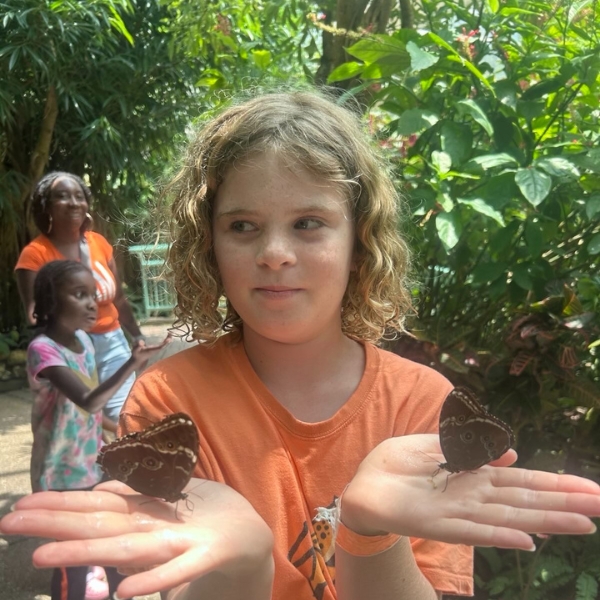
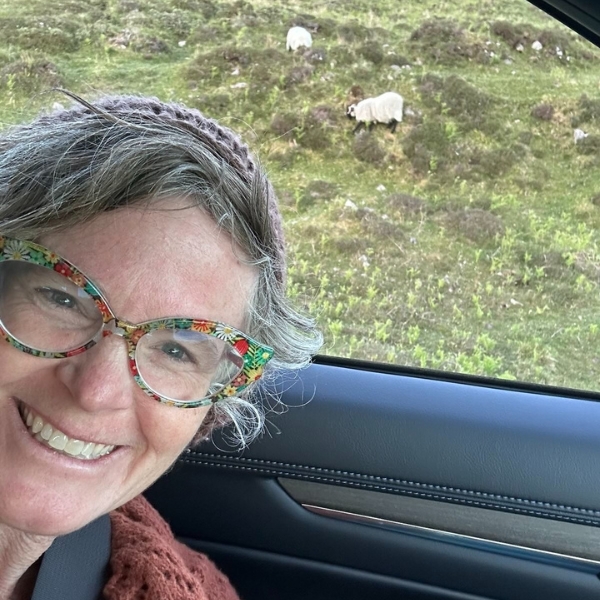
Audio version of this article read by the authors:
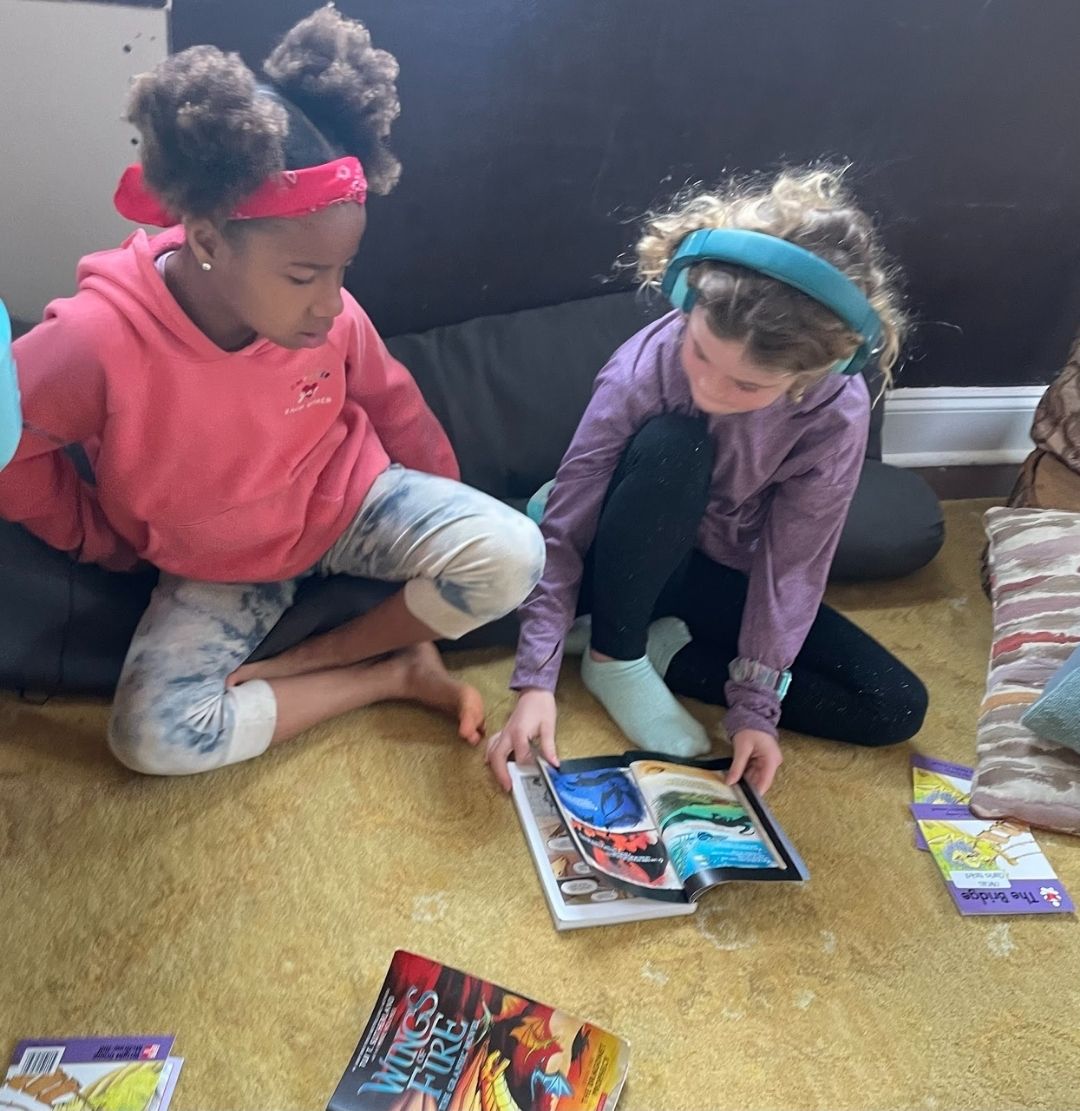
[I share with others about my dyslexia] sometimes. Like at school, yeah. It depends.... It’s hard like at Matthew’s Playhouse where you have to learn the lines. I’m usually with Willow or someone and they say it, “I’m dyslexic.” first and then I say it. -Aria, age 12
It used to be more frustrating, but now that I realize more people have it than I thought- I didn’t know so many people have dyslexia! But now I feel like excited to meet people who have dyslexia and to be around them. We talk about how our brains work differently, how we understand things differently. Some things are easier and some are much harder. -Simona, age 10
[I didn’t know] about it for a long time. Finding work arounds and trying to ignore it [is what I did.] And recently coming to grips or being ok with talking about it and realizing that I need to not just use work arounds and ... like evade questions. Recently I am trying to help myself. -Luke, age 16
[What helps me is] technology... my phone, a button reads to me. -Roxy, age 9
Even though reading is super hard for my kids, they love books. Like not a little bit, but seriously. They read all the time in the way that works best for their brains: ear reading with audio books. As a teacher steeped in whole language, new literacy studies and the most radical understandings of early childhood literacy it was obvious to me from the beginning way before the thought of dyslexia entered my mind that what they needed was access to literature. From the moment I found the audio copy of Young Fredle by Cynthia Voight for Luke when he was three years old, his first chapter book, we have never looked back. At that time I assumed that he would eventually read paper books in the way I do. Now I know that ear reading isn’t a stop gap. It’s a valid, crucial access to books for many people. -Lacy, mom and facilitator
[I started to identity as dyslexic] about a year and a half ago. I was 15... I’ve had a really hard time reading. It’s always made me frustrated. I’ve seen how for other people it is just easy. I just can’t. -Luke, age 16
I love books. I have read hundreds of books. I have listened to hundreds of books. I know you (Lacy) think it is the same, but in this article you have to explain: listening to books is the same as reading books. I’ve listened to hundreds of books. -Luke, age 16
Usually if there is a class that there is a worksheet, I will connect with a certain person to help me with that. I definitely do share that I’m dyslexic with people because I think it is important for them to know... because someone can support in different ways... but since some of my friends are also dyslexic, uh helping each other is (hahaha!!!)... key words and pictures help, too. -Simona, age 10
I like audio books. I read Number the Stars, Anne Frank, The Wild Robot and Wonder this year. -Aria, age 12
[Dyslexia is] just hard; a lot of crying. -Willow, age 12
It’s not the main thing about me. -Luke, age 16
Hey there, SDE people or SDE-curious people! We are from ALC Mosaic in Charlotte, North Carolina. Our school is self-directed. You can choose what you do. We don’t have grades (either kind). You don’t have to sit at a desk all day or listen to someone talk at you. We do have classes; we call them offerings. You don’t have to do just one class because of your age. You can do whatever kind of class you want. You don’t always have to be in a class, either. There are always people playing outside or doing their own projects around here. There’s a lot of freedom but there’s not license to disturb anyone else’s learning and adventures.
One offering most of us are part of this year is called, Dyslexia Power Up! Except for Lacy, we are all dyslexic, and we get together to talk about our experiences, try out accommodations that could help us and find out about how other dyslexic people in the world think and live. And lately we’ve been writing this article!
We hope that you got some insight into each of us and our thoughts about dyslexia from the intro quotes above. We are writing this because there isn’t much written about dyslexia and self directed education and because there is even less written by dyslexic kids who are growing up in the SDE settings. We think you, reader, need to know about our experiences, our ideas. The big ones we want you to think about shouldn’t come as any surprise to unschooly people: we think you should listen to dyslexic people about their own needs. This includes creating a feeling of community so that we can speak up, valuing consent and valuing people as we are.
So what do you know about dyslexia? Lacy has degrees and tons of hours of education in literacy stuff and knew almost nothing before realizing her two kids are dyslexic. Putting together what research says about dyslexia and what media and popular narratives say about dyslexia with the lived experience of dyslexic kids has created a whole lot of questioning. What does natural mean? Why is reading this huge deal? Why is dyslexia talked about so little? How can there be so little audio access to written material if there are so many dyslexic people out there? How can we create spaces that do not shame slow reading, non readers, learning to read late, use of accommodations?
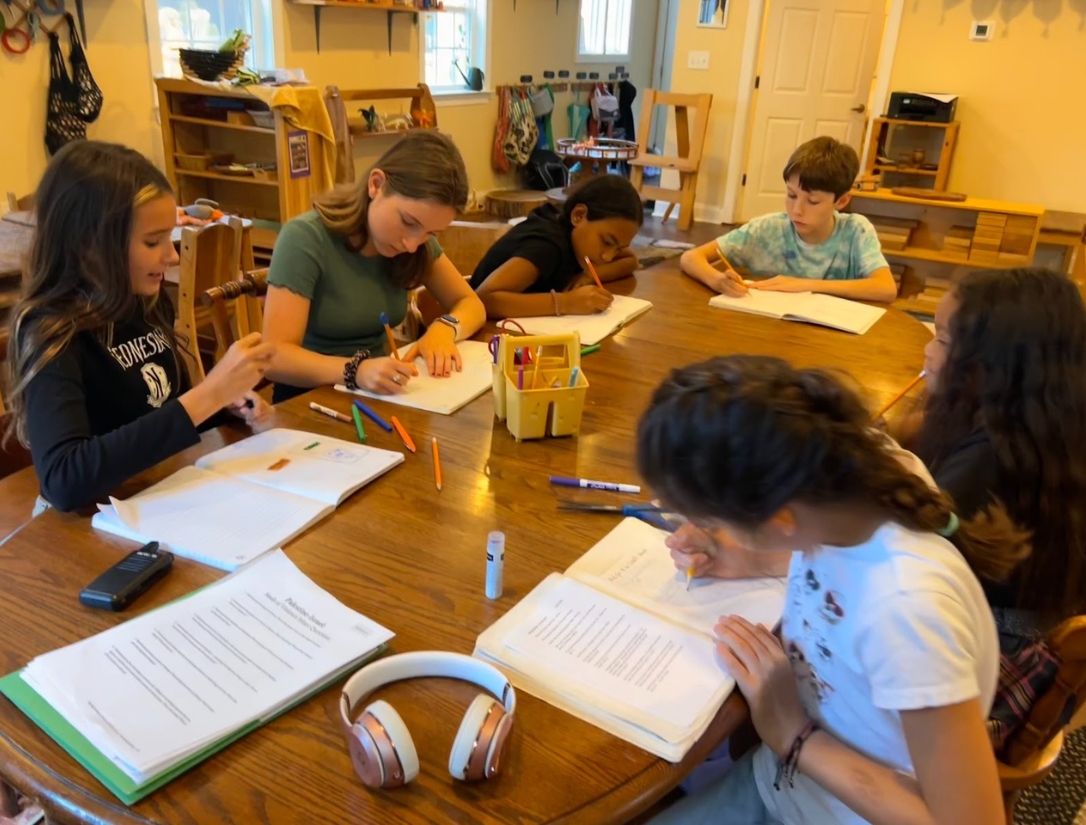
However, the reason we like tutoring is largely because of the tutor we have at our school, Kirsten. She really understands us. She plays fun games. She’s dyslexic too. She really knows the Barton program, but she actually gets us as people. Once something wasn’t working for Luke in the program so she figured out what would help him with some particularly tricky sight words. Because he is so good with stories, they looked up the origin stories of some words, like that one- of! So like in all our other experiences in SDE, we think it’s the relationship between people that really matters, but yes [Orton-Gillingham] tutoring is teaching us in a way that works for most of our brains.
Tutoring only works when kids consent. Willow recently decided to stop tutoring. It wasn’t feeling right for her. She is still accessing texts she needs, learning other things and living her life. We support her choice.
Foss says that at some point (and Lacy believes in tandem) support needs to focus on access to print material that people need and not on learning to read (or not on learning 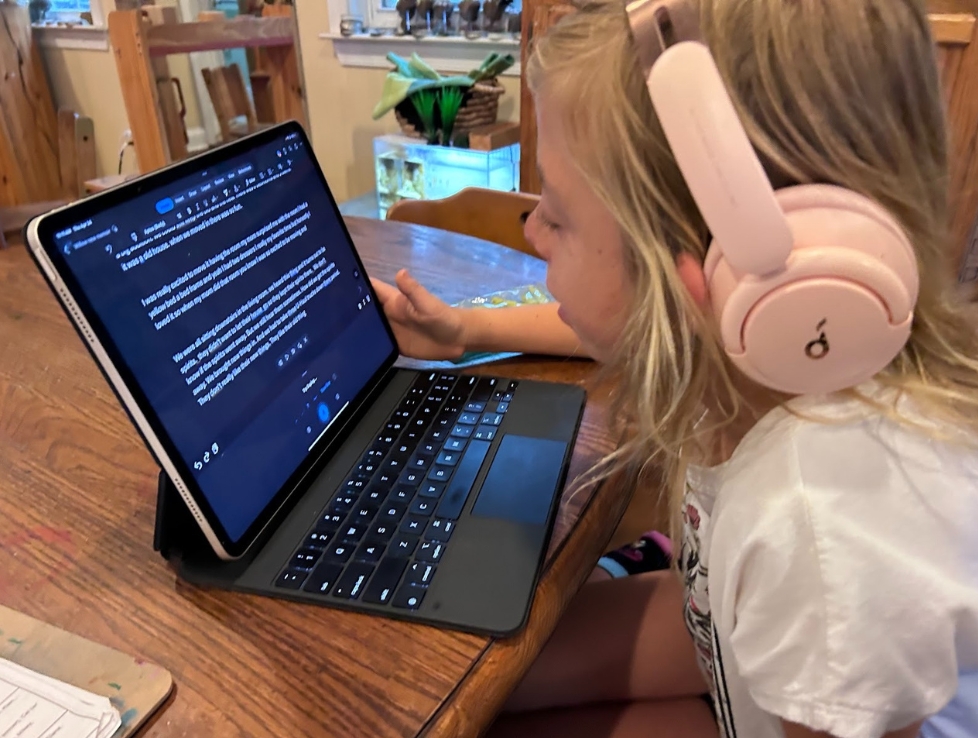
Also, as Simona mentions in the opening quotes, other people are super important in helping us access what we need. At our school kids are always helping each other during offerings, so it’s easy to work together with someone who can read things on a page more easily. Aria says before she learned about technology like this, she would just ask her mom all the time what things said.
Luke and Lacy’s Vignette
At the time of this writing Luke is 16 years old and the oldest kid in this group by a few years. He has also been at the school the longest and seen a lot of changes. He didn’t have the kind of dyslexic community or openness that the younger kids here are experiencing. In fact we didn’t know he was dyslexic for a long, long time. Lacy is his mom and also one of the school founders and a facilitator. Luke and Lacy agree with Foss about access to the written word and also want to emphasize especially to all the SDE people reading this that other dyslexic kids might be like Luke and really desire to know how to read text. So to just focus on the access and accommodations might not be enough. Luke and Lacy note that in our early journey as an SDE family we read a lot of narratives and research about how SDE kids learn to read at different ages even as young adults. Most of the unschooling and SDE literature that we found at the time (Peter Gray, Carol Black) focused on how learning including learning to read happens naturally. Both of us HAVE seen kids learn to read without instruction time and again in our setting. Actually, seeing his friends learn to read in the blink of an eye, only made things more difficult for Luke.
We were waiting for things to click for him, waiting for the motivating moment to come. You know how Minecraft or Harry Potter seemed to incentivize so many unschooled kids to read. We were looking for what moment would be his aha moment. And still we tried again and again between the two of us and later with another facilitator to teach Luke to read at his request. When things got hard, and they always got hard, he didn’t want to continue, and in our family we would never force teaching without consent. But we were doing all this with the story that people learn to read text naturally. Today Luke and Lacy are clear this isn’t actually true.
The newest understanding is that 20 percent of the population is dyslexic, like most other neurodiversities, it’s a spectrum and some people are more profoundly dyslexic than others. In Lacy’s experience lots of kids do learn to read “naturally” without instruction if they are in a literacy rich environment. Another group of kids learn eagerly with some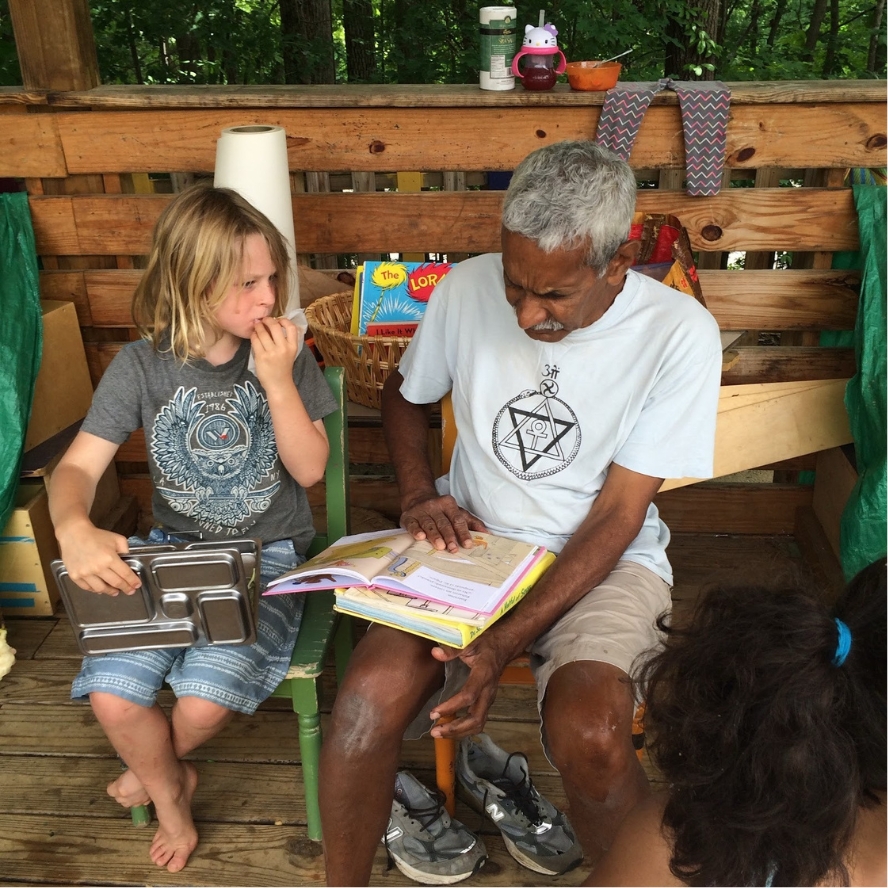
Ten years ago, eight years ago, six years ago, Lacy was out scouring the internet for stories of SDE kids that learn to read late. She rarely saw dyslexia come up in what she read. It was always that it will happen naturally. In fact she herself was out there saying that. Lacy reread Carol Black’s “A Thousand Rivers” essay this morning. It still all resonated deeply but with a heartache too because what is missing is the actual experience of Luke. The idea that reading will happen naturally given time, is just not true for all kids. It doesn’t mean that forcing, coercing or standardizing is the answer. Not at all! As a mom Lacy is fine with the choices her kids make about learning to read. They do not have to learn to eye read. If they want to do tutoring and get specific instruction, she will be there supporting and making it happen and also that is their choice. Luke wants this very much, shows up to each tutoring meeting on his own and is determined. Though he thinks it would have been easier when he was younger, it’s hard to miss the fact that he is inspired and truly self-directed in his current endeavor. Sometimes people ask about Self-Directed Education: how will kids learn to do things that are hard if they can just stop whenever they want to? The answer is because they learn to know themselves, to know their desires and then they choose to do the hard things that are on that path when it truly becomes their own path.
In our intro quotes Aria and Simona note how important it is to have other dyslexic people around you. For us it’s easier to talk to each other about our difficulties in reading text. Because for us we realize all the time how other people see words differently than us, how we are different because we have to work harder for something that is easy for a lot of people. To each other we don’t have to explain and we can joke around even in larger groups because we have this commonality. It helps lighten things up for one another. To know you are not the only one with a dyslexic brain, that it’s hard, but things can get easier, and we don’t have to be embarrassed. Like Aria with Willow in her intro quote, sometimes your also-dyslexic friend will be able to get the accommodations for both of you! Luke thinks it would have helped him to talk to other dyslexic kids when he was younger. He is just finding out now that some of his friends are dyslexic. And when he did finally talk to them about dyslexia it made a big difference. He started feeling like sharing with others himself. We think all dyslexic kids need some dyslexic community.
In this group kids have a lot of talents. All of the kids here show strong leadership skills. Willow is the best storyteller. Everyone sighs if she is out, because where is the fun time? She always knows what is happening and where the action is. Aria is athletic and deeply empathetic; she knows how to support other people. She cares about the world in a big way and wants to understand the struggles of other people. Simona is so intellectual and articulate! She wants all of the ideas, information, big roles, and academics. She goes for what she wants! Roxy loves books and stories with a passion. She loves babies and younger kids and knows how to care for them. Luke knows so much about animals, mechanics. Since 15, Luke has had an internship as a facilitator in the play yard at our school. In our school all of these attributes are highly valued. The kids make choices about their day and about the whole school year, about their full education to align with who they are, their strengths and desires. SDE has been getting it right in this way all along.
Luke often huffs about the problems of focusing on all the positive things about the dyslexic brain. For instance, in our Dyslexia Power Up offering, we studied the book, The Dyslexic Advantage (Eide and Eide, 2023). This book shares about all the ways that dyslexic brains work differently than others and how this is positive in all circumstances, except reading text. Luke says, yeah, but this glosses over the fact that being dyslexic is hard. It’s not butterflies and rainbows. As Willow points out, this comes up all the time. For instance, she says that someone should tell her doctor all about this (actually, her mom did!) because they do not believe that ear reading is reading. It’s a struggle, y’all.
What it comes down to for us is consent, community, listening to kids about access to text and learning to read, and valuing all the ways people show up in the world. We think reading is important! But it’s not everything. We are whole as we are. We are readers as we are, especially with audio. Our consent and individual processes for learning to read must be valued. Eye reading or reading text isn’t natural for dyslexic people. We need spaces where what does come naturally for us is valued! (Hey good job, classic SDE!) And we need easy access to instruction in eye reading that will work for us when we consent. Creating spaces where reading instruction flourishes, even a kind of packaged Orton-Gilingham thing, is not in conflict with SDE. At the same time, we need to be able to read (hey hey audio!) texts that are important to us in and out of academic settings. More than anything we need open talk about dyslexia, so that we have an easy way to meet other dyslexic people, especially other kids.
Works Cited
Black, Carol (-). A Thousand Rivers. https://carolblack.org/a-thousand-rivers
Eide, Brock and Edie, Fernadette (2023). The Dyslexic Advantage. Tantor Audio.
Foss, Ben (2013). The Dyslexic Empowerment Plant: A Blueprint for Renewing Your Child’s Confidence and Love of Learning. Random House Audio.






If you enjoyed this article and feel called to give back to ASDE, here are ways you can support our work:
- Donate money
- Share our content with others! Click one of the buttons above to easily share on Twitter, Facebook, or email.
- Consider becoming a Contributor for Tipping Points
Tipping Points Magazine amplifies the diverse voices within the Self-Directed Education movement. The views expressed in our content belong solely to the author(s). The Alliance for Self-Directed Education disclaims responsibility for any interpretation or application of the information provided. Engage in dialogue by reaching out to the author(s) directly.


